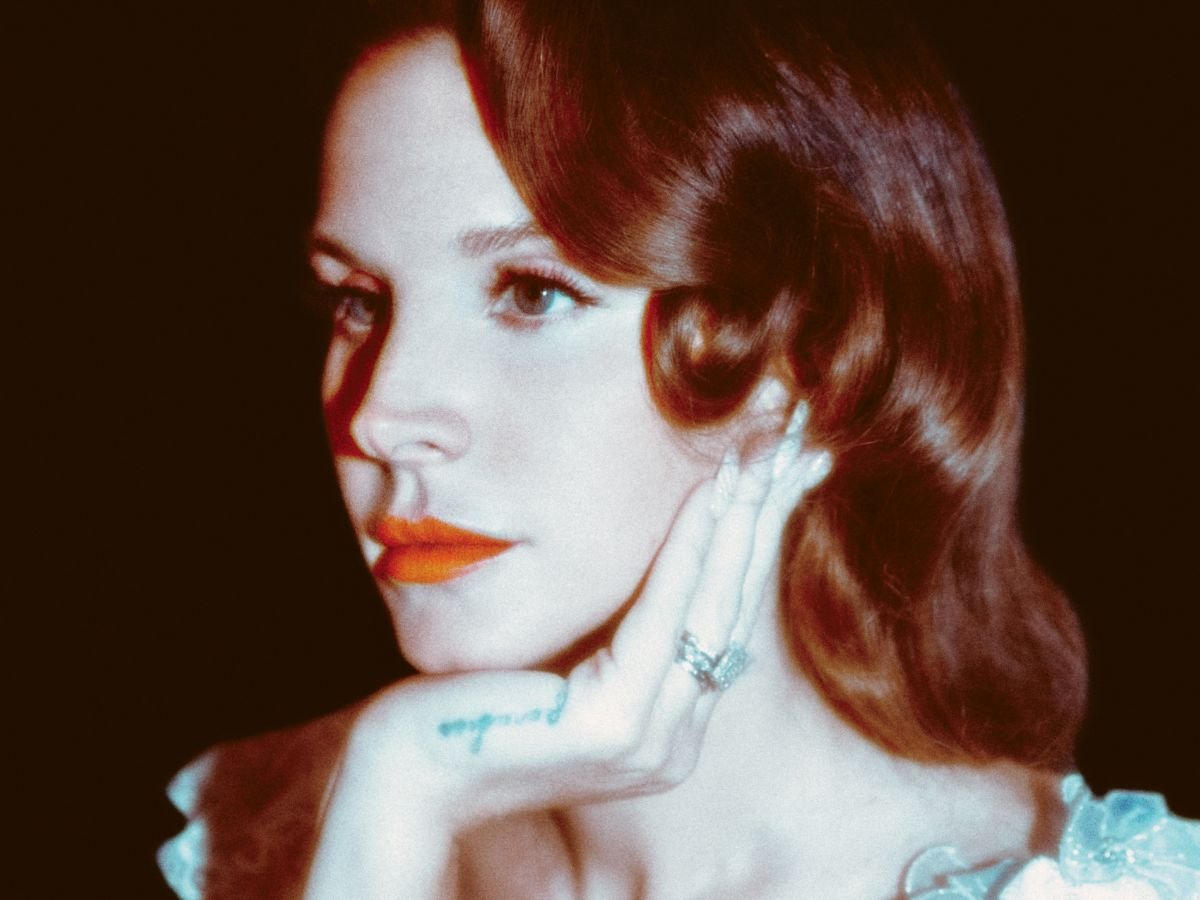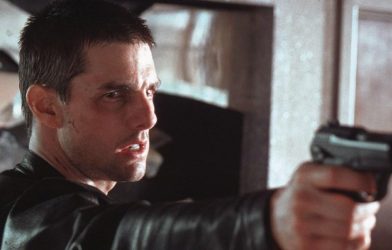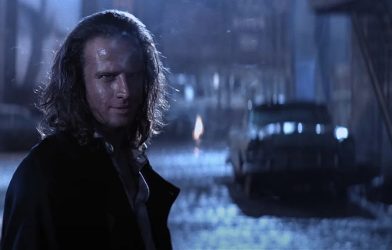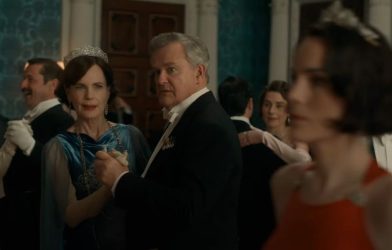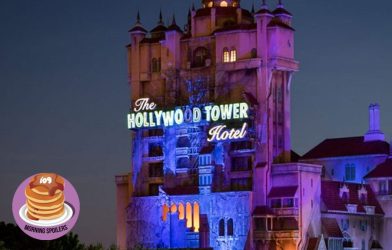
(Credit: Neil Krug)
If there’s one movie that defines the early years of Lana Del Rey’s career, it’s Dennis Hopper’s Easy Rider. While people are quick to associate her inherently cinematic world with movies like The Virgin Suicides, Girl, Interrupted, American Beauty, Black Swan, and True Romance – all of which undeniably align with the themes and aesthetics she has championed over the years – it’s the classic biker film that best epitomises her world.
Released in 1969, Easy Rider helped to change modern Hollywood with its experimental editing (that acid trip scene is simply unforgettable) and its boldly nihilistic themes, signalling the end of an era. The hippie optimism of the 1960s was dying out, with the main characters coming to realise the futility of the American Dream. As Hopper and Peter Fonda drive across America on their motorcycles, they come face to face with the country’s bitterness and emptiness, and their lives end tragically, with the pair getting shot down by strangers.
While Del Rey’s music has evolved a lot since her early days, over the course of her first few albums (and the various unreleased tracks she made before she hit the big time with Born to Die) she was entirely preoccupied with a specific vision of America defined by Coca-Cola and red, white, and blue. Motorcycles, denim shorts, leather jackets, motels, and references to quintessentially American places like Nevada, Coney Island, or Hollywood were everywhere in her evocative lyrics, crafting a vivid and romanticised world. She even recreated one of the most iconic moments in American history – JFK’s assassination – in her highly stylised and patriotic ‘National Anthem’ music video.
Yet, Del Rey is no fool, and for every depiction of America she explored through rose-tinted glasses, she also acknowledged the wasteland it can be, with tragedy, exploitation and sadness dissected in songs like ‘Carmen’, ‘Honeymoon’, and ‘The Blackest Day’. Still, she believes in the inherent promise that the country can offer, with her songs occupying a space somewhere between celebration and admonishment for her home. Her 2019 single ‘Looking for America’ even reflects her desire to see the country prosper, singing “I’m still looking for my own version of America/ One without the gun, where the flag can freely fly.”
Lana Del Rey’s American Dream
Throughout Del Rey’s discography, she has sprinkled various references to Easy Rider, such as “Like an easy rider” in ‘Freak’, “Is the sun in your eyes, easy rider?” in ‘Angels Forever, Forever Angels’, and “You’re not mean, you just want to be seen/ Born to be wild,” in ‘Art Deco’, a nod to the Steppenwolf song that plays at the beginning of the film. When she’s not singing about the movie directly, you can also find copious allusions to it through motorcycle imagery, like the line in ‘Yayo’, “Put me onto your black motorcycle.”
The singer’s obsession with the film seems to reflect her own experience of America, where true hardship, suffering, and prejudice exists alongside the promise of freedom and achieving your dreams. The contrast between hope and futility is one that can sometimes be seen in Del Rey’s early work, but there seems to be one thing that saves her from these feelings of doubt and despair – travelling through America.
‘Ride’, released on her 2012 EP Paradise, is the ultimate encapsulation of her desire for freedom, with the music video seeing Del Rey journey on the back of a motorcycle alongside a pack of bikers, an American flag flying in her arms. She begins the video with a monologue, stating, “I once had dreams of becoming a beautiful poet/ But upon an unfortunate series of events saw those dreams dashed and divided like a million stars in the night sky/ That I wished on over and over again, sparkling and broken/ But I didn’t really mind because I knew that it takes getting everything you ever wanted and then losing it to know what true freedom is.”
It’s an inherently Easy Rider-esque video, with Del Rey basking in the freedom of the “open road” and existing with the outsiders and outcasts, disregarding what society expects of her and just riding along. While Hopper’s film ends in tragedy, Del Rey puts a more hopeful spin on her obsession with motorcycles, freedom, and America.
The country might let down its citizens, and freedom often feels like a myth, but for Del Rey, the belief that you can at least try to carve your own path, like Wyatt and Billy, keeps her going. She acknowledges that allowing yourself to experience the good and the bad is the best thing you can do to find liberation, even if everything seems uncertain. “Live fast, die young,” she says, taking a leaf out of Hopper and Fonda’s books. Wyatt and Billy’s lives might end tragically, but they refused to conform to a life of boredom and normality, taking every opportunity they could get to embrace America’s supposed promise of freedom, just like Del Rey.
Related Topics

